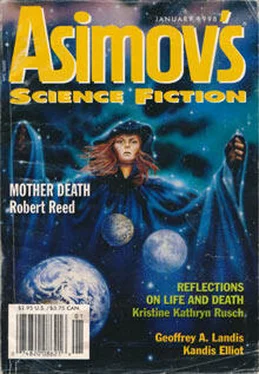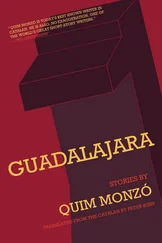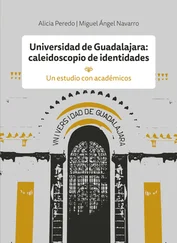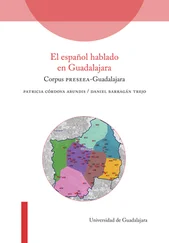The Royal We joined me, gave the wet tiles an even more disdainful look than she did the little green and black turd, and chose to grace with her presence the only lounger receiving a direct sunbeam. She sat in the ray of light like a ginger Egyptian idol and paw-washed breakfast eggs and chorizo grease from long white whiskers. She ate anything we did and things even Ziggy didn’t touch on a bet, and was the only one of us who never got the drizzling dysentery. She seemed disappointed, however, that Mexican cuisine burned out her hairballs, which she otherwise delighted in depositing on Ziggy’s bed in the middle of the night. She knew that nothing compares with waking to the huk-huk-huk of a raffing cat. Ziggy’s rhinoceros-like demeanor aggrieved The Royal We’s nerves something fierce.
I settled down to mark the net’s stock proceedings on my PMX, raising the transceiver antenna to catch whatever The We generated with her washing. One in a million mammals, 90 percent of them felines, possessed a hair structure that made them focused-tesla generators. Perfect, uninterruptible power for mobile executive computers anywhere on the face of the Earth or any other magnetic mass. Fully cognizant of her one-in-a-million status, The Royal We gave me an insufferably superior look as I accessed the global digital highway. Ziggy would need some ammo for this afternoon’s lecture at the Universidad de Guadalajara’s historic auditorium, the one with the strange painting behind the stage. Speakers at the podium had to vie for audience attention as they stood like midgets beneath the great mural of skeletal workers either frying in hell, or bringing hell with them, as they raged at well-to-do CEO types and fat bourgeois clasping books. The bourgeois, faces emblazoned with loathing and trepidation, were painted in confrontational poses as they looked upon the oncoming tide of flaming proletariat corpses. I promised myself to ask the meaning of the painting, after the lecture. I promised myself, less credibly, not to lose heart.
Developing countries had some inkling of the value of recreational land; Ziggy and I had been trying to make use of that. Neither we nor anybody else could just glom onto a hunk of rain forest, or even semitrampled volcanic slopes, and rope them off as wildlife preserves. To salvage anything left meant finding clever ways of making nature pay her way, and we’d had some successes. A bird refuge in a parasite-infested swamp more than paid for itself when we allowed one big hotel to drain, pollute, and asphalt a portion of it, hire local citizens as cooks, bartenders, entertainers, maids, and tour guides, and collect big bucks from wealthy bird-watchers and millionaire retiree novo-conservationists who remembered seeing birds in their childhoods and wanted to see just one more before that final good night.
A mountaintop named Monte de Manantlán west of Guadalajara would make a perfect riding trail for elite two-week gringo vaqueros who wanted a relatively cool, relatively bug-free, sub-tropical mountaintop to play on. The fact that the mountain had over 70 percent of its once-rich native flora and fauna, some two thousand species in all, was not relevant to its yearly profit margin. But the view was, and a couple of ritzy lodges here and there would pick enough jet-set pockets to pay for several hundred miles of patrolled razor-wire fences to keep the riffraff and their livestock out. Ziggy would ask for it this afternoon. Unfortunately, something bigger than dude ranches seemed to be in the electronic wind for that mountain. The Net divulged only indecipherable whispers, peculiar and well-guarded.
A little oval movement caught the corner of my eye. A big cockroach or small mouse, and I automatically turned to follow it. Whatever-it-was evidently ensconced itself in one of the potted palms rimming the pool’s tile beach, and might have been anything endemic to Central Mexico: handsized scorpions, spiders, beetles, lizards, toads, or any of a dozen species of mountain mice. It might have been a polluelo, a lost chick from the innumerable chicken families inhabiting the interior courtyards of private Mexican homes even in the dense bowels of glass-and-concrete cities.
I caught the little retinal shadow twice more during the next hour, each time not quite turning fast enough to perceive what it was. I ventured to The We, engaged in the sunning of the Royal Personage, that she might do a little policing of the pool area, a suggestion received as beneath both notice and contempt.
The maid came out and hosed the turd into a melted heap and thence into the pool.
Ten minutes later Ziggy dashed out and heaved his stocky bulk into the pool like a white whale, splattering me, my laptop, and The Royal We. He then proceeded to stand waist-deep in the center of the pool under the fountain, letting his hair wash into his eyes and laughing at We, who hissed furiously at him from under her lounger.
“I’m going to tell them about Albricht’s rats,” he yelled at me as I departed for dryer realms.
We decided to walk to the auditorium, which occupied most of an old Alamo-like church taken over by the Universidad and was only a mile or so from our villa. I carried The Royal We. She was part of the team and knew it, so she consented to use me as a riding mount and was smart enough to stay put on my shoulders. One never saw cats running loose in Mexican cities, and I wasn’t sure that if we left The We at the villa, the cook wouldn’t be serving fresh-meat tostidos for la cocina in the evening. Pollution made We sneeze cat snot on the back of my head a couple of times, but in general she gave me no more grief than would a woolen scarf wrapped around my neck in the eighty-degree heat.
Smog called El Cappa sat over the city like low clouds, obscuring the bowl of mountains and old volcanoes enclosing Guadalajara. From our plane, the cap of pollution had looked like a solid ochre plug; seen from the streets, the calles and avenidas and sharp lava pavement stones, it seemed a more distant veil. The air occasionally stung the nose and made eyes water, but the perfume of flowering trees along the avenidas and the roses growing everywhere like weeds was thicker than the smell of auto exhaust and the effluent of factory smokestacks, and easier to breathe deeply of. Also easy to sniff in the air was the warm, delicious fragrance of taco stands, sugar and cacahuete tiendas, and omnipresent restaurantes frying eggs with chopped tomatoes and hot peppers and white crumbly cheese. And tortillas on hot greased griddles, smothered in frijoles and salsa, the good rich grain smell of roasted corn. For a moment the air wavered as though the aroma itself had palpable substance, a thickness distorting the crowded streets like a lens.
The smell of corn got Ziggy to commenting. Ziggy can comment inexhaustibly on any subject. “Gringos don’t roast corn much,” he observed. “We don’t know this good smell—our sweet-corn roasts don’t compare at all. Sweet corn’s a watery, unripe vegetable. Popcorn, perhaps—” he turned to Inez, who’d been following at our heels and suffering the stares of her countrymen for us and the cat on my shoulders. “Nezzy, did you know that Mexican tortillas are made from African corn? Bought cheap, because your higher-grade Mexican corn is sold to Africans at twice the price. Africa’s one big cornfield and day-care center. Growing damn near as fast as Latin America. Did you know that Mexico City is a third bigger than Calcutta?” Of course Inez knew all that, and probably better than Zig.
We crossed a magnificent plaza lined with palms and blue fountains so clotted with chlorine and copper sulfate that birds could not drink from them, although kids did. The plaza stones were covered by blankets strewn with jewelry, ceramics, little sculptures, and so on, brought in daily by Nauatl-speaking descendants of Cortes escapees. “Der Todge-schwiegen,” commented Ziggy in rusted German, indicating the street merchants. He pointed at billboards, advertisement placards, store manikins, pictures in newspapers, all of which portrayed northern-European Caucasians. The people visible in the plaza, like all of Guadalajara, were swarthy, black-haired, stocky indigeno types. “Dead by silence. Nonexistent by popular consensus. One day they’re not going to be so dead.”
Читать дальше












